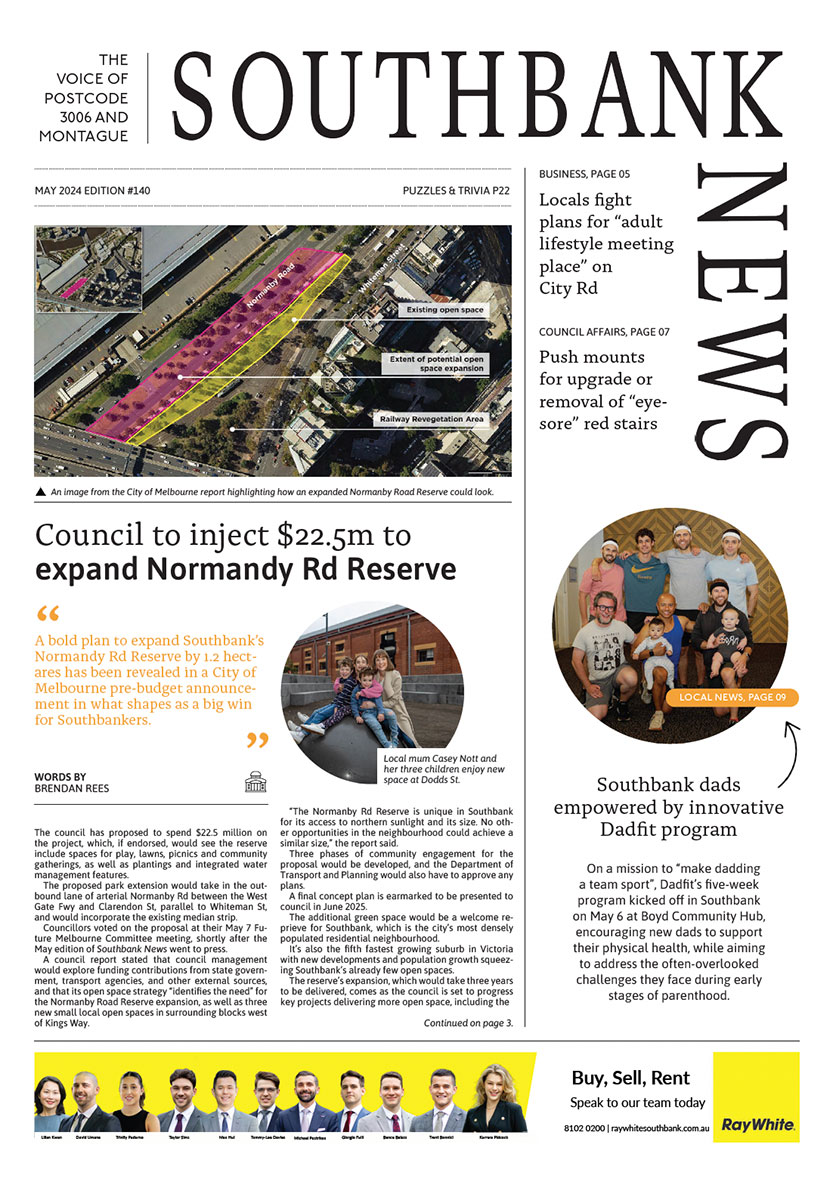
Should council step in to regulate short-stay operators?
By Katie Johnson
With the majority of the City of Melbourne’s (CoM) 180,000 residents living in apartments, residents’ groups across the city are proposing that the council forms a dedicated unit focused on the needs of apartment-dwellers.
One of the major concerns cited during a Resident’s First meeting in October was the lack of regulation around short-stay operators, which has resulted in decreased amenity and security in apartment buildings around Melbourne.
Docklands resident Dr Janette Corcoran, who recently ran for the CoM as a councillor candidate on the Residents First ticket, said that without council intervention, residents remained powerless to stop short-stay operators from over-running residential buildings.
“We don’t have a unit that understands our way of living and our challenges,” Dr Corcoran said. “This can make representations on our behalf to other levels of government difficult. The City of Sydney has [addressed the issue],” Dr Corcoran said.
“Residents have the right to feel safe and secure in their home, get a good night’s sleep and not subsidise the business operations of others.”
CEO of Strata Title Lawyers Tom Bacon said that councils around Australia and the world had short-stay regulations in place for years and the CoM “needs to be doing more”.
“As we come out of COVID every government is going to be wanting to cut the red tape, stimulate the economy and get rid of bureaucracy – particularly in Melbourne,” Mr Bacon said.
“But in this space, we do need some bureaucracy, databases, and for short-stay operators to pay commercial rates and obtain town planning permits, upgrade their fire safety plans and go through the proper process.”
In New South Wales, the state government has a database which requires all short-stay operators to register and residents are able to consult the government if they have any issues.
This regulation also exists internationally, with London requiring a planning permit for short-stays in residential buildings and New York having banned them outright for stays of less than 30 days.
But Mr Bacon said as the CoM didn’t require short-stay operators to have a land-use permit, it’s difficult to keep track of how many there were and how they operated.
“The regulation here is very light-touch and basically endorses short-term letting so you can do it 365 days a year and you can have one night minimum stays,” Mr Bacon said.
“It’s very disappointing regulation compared to other cities around the world.”
With regulation decided by individual building managers and owners’ corporations (OCs), there is no uniform policy for how many short-stays can operate.
Residents also have no peak body to consult when breaches occur, including building damage, noise complaints and suspicious activity.
Barbara Francis of resident lobby group We Live Here said that this was particularly an issue from a public health perspective, as short-stays could be a breeding ground for COVID-19 in residential buildings.
“Short term letting is completely at odds with having a COVID-safe plan, it actually creates a potential health hazard,” Ms Francis said.
“When residents were concerned in the past about short-stays spreading the virus, COVID-19 and police hotlines were of little help because they did not have the authority to step in.” Although short-stays were badly hit by Melbourne’s lockdown, Ms Francis said that with restrictions easing now was the time for the council to step in and strengthen apartment communities post-COVID-19.
“Permanent residents, owner occupiers and long-term tenants who have been putting up with the rampant, out-of-control, short-stay industry for so long are now rediscovering the amenity and security of our homes that we thought we had lost forever,” Ms Francis said.
“The challenge now is to reclaim the title of the most liveable city in the world and make sure all stakeholders have a say as things go back to normal.”
Currently, the CoM doesn’t have the power to issue land use permits to short-stay operators.
To do so, the Minister for Planning would need to amend the Victorian Planning Division to distinguish between different types of residential accommodation.
Although it would present a significant task for the council, Cr Rohan Leppert said that The Greens fully supported amending the legislation to better regulate land use.
“Council has an important role to support owners’ corporations and apartment residents navigate a complicated legal framework, and I support the creation of a dedicated ‘apartment living’ team or function in the council,” Cr Leppert said.
“This cannot, however, be a substitute for genuine reform. We are never going to address the tensions between short and long stay accommodation until we clearly distinguish between them in planning and building law.”
“That needs state government intervention, and redefining types of accommodation in law is an enormous undertaking. But with interstate and international visitation at record lows, now is the least worst time for the state, council and strata community to tackle genuine reform and work with all property owners fairly.” •

La Camera celebrates 25 years at Southgate

New residential tower planned for heart of Southbank





 Download the Latest Edition
Download the Latest Edition